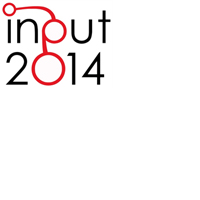Dealing with Resilience Conceptualisation. Formal Ontologies as a Tool for Implementation of Intelligent Geographic Information Systems
Abstract
The paper addresses the issue of the representation of the concept of resilience (urban, environmental and landscape resilience) in the context of geographic information systems. In the current technical and scientific debate, resilience is configured as an intrinsic property of a system to switch from one equilibrium state to another without losing its basic internal structure, also definable in terms of "identity." The paths to success or stable growth as well as those of continuing and recursive crisis, although already explained in macroeconomic terms through the mechanisms of accumulation and multiplication (cumulative advantage), are also interpreted in terms of resilience. So, in the field of studies on spatial planning, the concept of resilience became particularly significant in an era characterized by great instability of social systems, deep economic and environmental crisis. In the process of urban and regional planning, conceive the development of an urban region in terms of resilience means using the logic of complex systems and then adapt in this way their methods of knowledge representation. The concept of resilience is multi-dimensional and vague, so its conceptualization is complex. The formal ontologies can be a useful tool to orient geographic information systems towards more complex forms of knowledge representation and to adapt them to the requirements of logic and formal complex systems, such as today's urban regions.
Downloads
References
Baader, F., Calvarese, D., McGuiness, D., Nardi, A.,Patel-Schneider (2010), The Description Logic Handbook: Theory, Implementations and Applications Readings in knowledge representation, Cambridge U.P., Cambridge, MA.
Berkes, F., Folke, C. (1998), “Linking Sociological and Ecological Systems for resilience and sustainability,” In id.. Linking Sociological and Ecological Systems: Management practices and social mechanisms for building resilience, Cambridge University Press, New York, 1-25.
Berkes, F.; Colding, J., Folke, C. (2003), Navigating Social-ecological systems: Building resilience for complexity and change, Cambridge U.P., Cambridge, MA.
Caragliu, A., Del Bo, C., Nijkamp, P. (2009), “Smart cities in Europe”, Proceedings of the 3rd Central European Conference in Regional Science.
Carpenter, S., Foley, J.A., Folke, C., Walker, B. (2001), “Catastrophic shifts in ecosystems”, Nature 413(11), 591-596.
Eco, U. (2014), From the Tree to the Labyrinth. Historical Studies on the Sign and Interpretation, Harvard UP, Cambridge, MA.
Evans, J.S.B.T., Frankish, K. (2008), In Two Minds: Dual Processes and Beyond, Oxford U.P., New York, NY.
Folke, C.; Hahn, T.; Olsson, P., Norberg, J. (2005), “Adaptive governance of social-ecological systems”, Annual Review of Environment and Resources, 30, 441-473.
Folke, C., Carpenter, S., Walker, B., Scheffer, M., Chapin, T., Rockström J. (2010), “Resilience thinking: integrating resilience, adaptability and transformability”, Ecology and Society, 15(4), 20.
Frixione, M., Lieto, A. (2012), “Representing Concepts in Formal Ontologies: Compositionality vs. Typicality Effectes”, Logic and Logical Philosophy, 21, 391-414.
Gruber, T.R. (1993), Toward principles for the design of ontologies used for knowledge sharing, Technical Report KSL 93–04, Knowledge Systems Laboratory, Stanford University, Stanford, CA.
Guarino, N. (1998), “Formal Ontology in Information Systems”, Proceedings of FOIS’98, IOS Press, Amsterdam.
Guarino, N. (2009), “The Ontological Level: Rivisiting 30 Years of Knowledge Representation”, Conceptual Modeling: Foundations and Applications, 52-67.
Gunderson, L.H., Holling, C.S. (eds.) (2002), Panarchy: Understanding Transformations in Human and Natural Systems, Island Press, Washington D.C.
Hagen-Zanker, A. (2006), “Map comparison methods that simultaneously address overlap and structure“, Journal of Geographic Information Science, 17.
Hassink, R. (2009), “Regional resilience: a promising concept to explain differences in regional economic adaptability?”, Journal of Regions, Economy and Society, 1-14.
Holling, C.S. (1973), “Resilience and stability of ecological systems”, Annual Review of Ecology and Systematics, 4, 1-23.
Komninos, N. (2009), “Intelligent cities: Towards interactive and global innovation environments”, International Journal of Innovation and Regional Development, 1(4), 337-355.
Levy, A.Y. (2000), “Logic-based techniques in data integration”, in Minker J., Logic-based Artificial Intelligence, Kluwer Academic Publisher, 575-595.
Maguire, D.J., Batty, M., Goodchild, M.F. (2005), GIS, Spatial Analysis, and Modeling, ESRI Press, Redlands, CA.
Pelling, M. (2003), The Vulnerability of Cities: Natural Disasters and Social Resilience, Earthscan, London.
Smith, B., Varzi, A.C. (2000), “Fiat and Bona Fide Boundaries”, Philosophy and Phenomenological Research, LX(2), 401-420.
Tidball, K.G., et al. (2010), “Stewardship, learning and memory in disaster resilience”, Environmental Education Research, 5, 591-609.
Vale, L.., Campanella, T.H. (2005), The Resilient City: How Modern Cities Recover from Disaster, Oxford University Press, New York.
Berdini, P. (2008), La città in vendita, Donzelli, Roma.

Copyright (c) 2014 Tema. Journal of Land Use, Mobility and Environment

This work is licensed under a Creative Commons Attribution 4.0 International License.
Authors who publish in this journal agree to the following:
1. Authors retain the rights to their work and give in to the journal the right of first publication of the work simultaneously licensed under a Creative Commons License - Attribution that allows others to share the work indicating the authorship and the initial publication in this journal.
2. Authors can adhere to other agreements of non-exclusive license for the distribution of the published version of the work (ex. To deposit it in an institutional repository or to publish it in a monography), provided to indicate that the document was first published in this journal.
3. Authors can distribute their work online (ex. In institutional repositories or in their website) prior to and during the submission process, as it can lead to productive exchanges and it can increase the quotations of the published work (See The Effect of Open Access)
